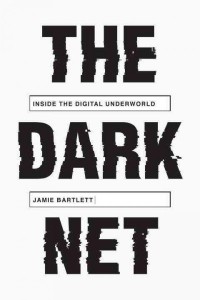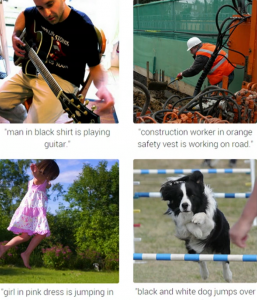The Freqonomics podcast explores “the hidden side of everything.” This particular episode does a masterful job of charting the Internet’s trajectory from its inception (and before) to the present. Without being overly technical, it outlines some key trends that may threaten the original vision of the net as an open communication platform for everybody—and may also have profound impact on our greater society.
Category: Chapter 10 Computer Security and Risks
We generally think about digital technology as something that’s outside of us. I think there’s a clear boundary between me and my technology. But that boundary is getting fuzzier all the time. In this fascinating talk to the Long Now Foundation, science fiction writer Ramez Naam makes a compelling case that the boundary is about to disappear forever. He discusses cutting edge research in many related fields and the ethical implications of that research as it finds its way into our products and our bodies.
The Long Now Foundation hosts an excellent series monthly talks related to its important mission of helping us see the long view; this is part of that ongoing series. While you’re on their site, take some time to look for other gems.
Shaming and bullying existed long before the Internet age. But social networks have the power to magnify the negative impact of those activities, sometimes wrecking the lives of innocent people in the process. In this fascinating TED talk, Jon Ronson graphically illustrates this phenomenon with a true story and talks about what we need to do to minimize the consequences of Internet shaming.
[iframe id=”https://embed-ssl.ted.com/talks/jon_ronson_what_happens_when_online_shaming_spirals_out_of_control.html” align=”center” mode=”normal” autoplay=”yes” aspect_ratio=”4:3″ maxwidth=”720″]
 There are huge chunks of the Internet that can’t be found with your standard web browser. Criminals, anarchists, and trolls use encryption-enabled browsers to conduct their business anonymously in these dark corners of the net. In this fascinating Fresh Air interview, author Jamie Bartlett talks about his experiences in the dark net.
There are huge chunks of the Internet that can’t be found with your standard web browser. Criminals, anarchists, and trolls use encryption-enabled browsers to conduct their business anonymously in these dark corners of the net. In this fascinating Fresh Air interview, author Jamie Bartlett talks about his experiences in the dark net.
npr.org/sections/alltechconsidered/2015/06/03/411476653/infiltrating-the-dark-net-where-criminals-trolls-and-extremists-reign
Many people believe that privacy is a thing of the past. It’s true that our networked world makes it harder to keep secrets. But there are many things you can do to protect your privacy online. This Huffington Post article clearly outlines some quick fixes you can make in a few minutes.
 This is a big question with a multitude of answers. NPR’s new program/podcast Invisibilia answers with three stories. The first one looks at the big picture with questions about artificial intelligence, wearable computers, and the possibilities for human/computer co-evolution. The other two stories look at specific, personal, right-now examples of human character changes as a result of digital technology.
This is a big question with a multitude of answers. NPR’s new program/podcast Invisibilia answers with three stories. The first one looks at the big picture with questions about artificial intelligence, wearable computers, and the possibilities for human/computer co-evolution. The other two stories look at specific, personal, right-now examples of human character changes as a result of digital technology.
npr.org/programs/invisibilia/385792677/our-computers-ourselves
 For decades researchers have experimented with machine learning—software that can improve with experience without being reprogrammed. That research has paid off in a number of applications, including the intelligent search engines that we use every day. But recent breakthroughs in a field called deep learning are likely to bring radical transformations to our lives very soon. This TED Talk by Jeremy Howard explains the technology and touches on a few applications and implications. Spoiler: there’s good news and bad news….
For decades researchers have experimented with machine learning—software that can improve with experience without being reprogrammed. That research has paid off in a number of applications, including the intelligent search engines that we use every day. But recent breakthroughs in a field called deep learning are likely to bring radical transformations to our lives very soon. This TED Talk by Jeremy Howard explains the technology and touches on a few applications and implications. Spoiler: there’s good news and bad news….
[ted id=2155 lang=en]
 Malware makers are always coming up with new ways to exploit innocent computer users. One relatively new breed of malware, ransomware, encrypts files, making them effectively unusable, unless their owners pay ransom to the perpetrators. This short NPR story focuses on this very real threat.
Malware makers are always coming up with new ways to exploit innocent computer users. One relatively new breed of malware, ransomware, encrypts files, making them effectively unusable, unless their owners pay ransom to the perpetrators. This short NPR story focuses on this very real threat. War and technology have been intertwined throughout human history. Today’s digital technology is creating a whole new form of war that’s all but invisible to most of us. In his book @War, Shane Harris describes the war that’s waged on the Internet and describes the relationship between government and the tech industry that makes that war possible. In this NPR Fresh Air program he’s interviewed by Terry Gross.
War and technology have been intertwined throughout human history. Today’s digital technology is creating a whole new form of war that’s all but invisible to most of us. In his book @War, Shane Harris describes the war that’s waged on the Internet and describes the relationship between government and the tech industry that makes that war possible. In this NPR Fresh Air program he’s interviewed by Terry Gross.